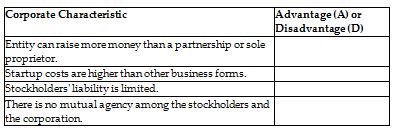Betsy's elderly father gave her written authority her to sell the family house. Her father lived in Arizona and she lived in Minnesota. After about two months she found a buyer for the house and signed an acceptance of the offer on March 21. Later that
same day she learned her father had died the day before (March 20). Other members of the family did not want the family house sold and claimed that the acceptance Betsy signed was void. The buyer of the house claims Betsy had the legal authority to sell the house and that the contract is binding. Who is right?
The contract is void since Betsy's authority to act for her father terminated at the moment he died. An agent only has the power to perform acts that the principal could do himself. Accordingly, once a person dies, his capacity to contract terminates at that time. Since Betsy's father could not have contracted to sell the house at the time Betsy signed the acceptance of the offer, Betsy, as her father's agent, had no capacity to do so either.
You might also like to view...
Following is a list of advantages and disadvantages of the corporate form of business. Identify each characteristic as either an advantage (A) or a disadvantage (D).

Franklin's bank statement showed a balance of $2,592.58. There were 2 ATM fees of $3.00 and $2.50. He had made three outstanding deposits not recorded by the bank for $115, $619.78, and $45.90. The outstanding checks were in the amounts of $23.89, $515.78, and $19. What is the adjusted bank balance?
In a Statement of Revenues, Expenditures, and Changes in Fund Balances, Transfers In are reported within Total Revenues.
Answer the following statement true (T) or false (F)
Outbound logistics, a primary activity in Michael Porter's value chain, includes tasks associated with receiving, storing, and converting raw materials to finished goods
Indicate whether the statement is true or false